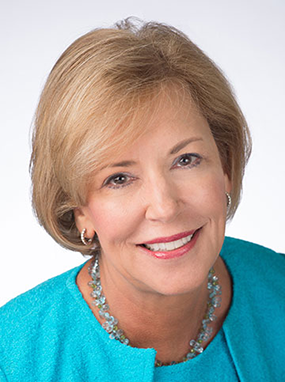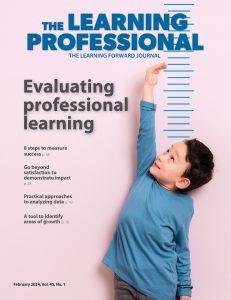The 22 districts participating in Learning Forward’s Redesign PD Community of Practice share our concerns that too few educators experience effective professional learning that will help them ensure all students succeed. As a result, too few students experience Learning Forward’s vision of excellent teaching and learning every day.
The districts agreed to participate in a “ruthless assessment” of their current state, and the findings probably will not surprise you: too many failed attempts at professional learning, fragmentation and silos of practice, and few attempts to measure the effectiveness of their work. From this, the group developed two problems of practice, and each district team thoroughly embraced one or the other. Each team’s goal is to find a solution that not only impacts its system but also could inform the work of colleagues everywhere.
Their goals are bold, and their actions align to that. They are asking hard questions and taking steps previously untried. I am confident they will significantly move the needle on these two long-standing challenges. In the meantime, there are some facets of this work that will benefit all of us. Here are three actions you can take immediately.
Study communities of practice to learn what makes them unique.
You may think you already understand them because you are part of a professional learning community or some other network, but there are elements of a community of practice that can add substantive value to these learning designs. One element in particular is the focus on a shared problem rather than working alongside other professionals for support as you work on your own problems. This shared focus accelerates the process and deepens the implementation of the solutions. Try it.
Don’t skip the “learning.”
In our study and development of this community of practice, we needed to elevate the “learning” steps. I was reminded again of one of my favorite sayings: Shared ignorance does not create powerful plans. For each step you take toward potential solutions to your problems, you will find guidance from research, best practices, and information from other fields. Intentional learning focused on a problem of practice is what distinguishes Learning Forward’s work from others. I am convinced it will be the hallmark of a successful community of practice.
Enroll in a community of practice.
Watch for opportunities next year to enlist your system or school in one of ours. Perhaps you are thinking about enrolling in the Learning Forward Academy, which will transition to a community of practice model. Perhaps you want to launch your own in your school system or find one sponsored by another hub. The experiences reflected in the articles in the December issue of JSD illustrate how to make that happen — and we are here to help if you get stuck. We will continue to look for ways you can experience this powerful learning design.
To get started, study the Redesign PD Community Cycle of Inquiry. Use this resource to determine if your PLCs or other learning structures are paying equal attention to all the significant steps and responsibilities. From there, you will be off to a good start.
Learning Forward will continue to provide free resources and support to help you on this journey. We appreciate the Bill & Melinda Gates Foundation’s ongoing support of this work.
This post originally appeared in Learning Forward’s PD Watch.







